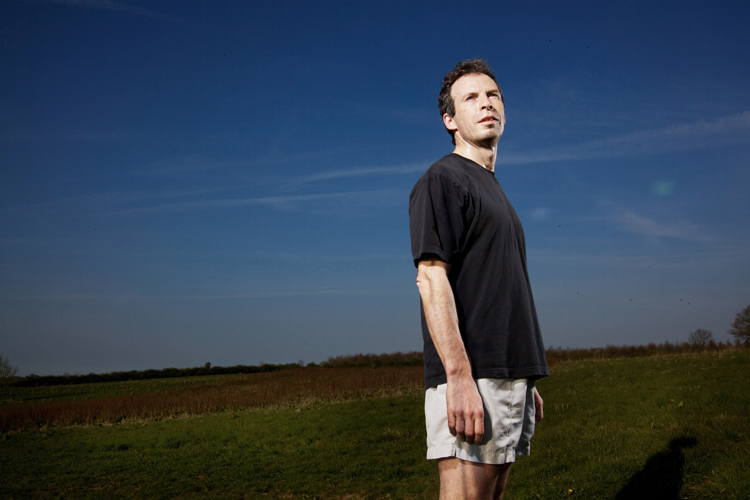You didn’t always take such a back-to-basics approach to running. What prompted you to start running in a simpler, less competitive way?
I think it was partly a question of age, or at least of the stage of my life I was at. I’d done an awful lot of running: an awful lot of focusing ruthlessly on targets, working obsessively towards very ambitious goals and generally trying to be the very best runner I could possibly be. At some point – in my early forties, I think – it struck me that if I’d been going to set any world records, I’d probably have done so by now. I realised that I was starting to get jaded. I still religiously checked my times for each training run and each race – but, actually, what did it matter? In the long term, I was unlikely to improve, or not in a very exciting way. And, meanwhile, I began to notice that there were other aspects of my running life, like the beautiful environments I was lucky enough to run in, that I hadn’t really been paying enough attention to. When I started to focus on these, I realised that they were far, far more motivating than worring about my split times.
In your book, you espouse the benefits of rural running. What does it have over its urban equivalent?
The great thing about rural running for me is the happiness it brings me. I think that’s what prompted me to write Running Free. I kept noticing how refreshed I felt – physically, emotionally, spiritually – after going for a run through the fields, and I thought this might be a nice thing to share with people.
Obviously, most runners find that running helps give them a sense of wellbeing, even in cities. That’s why we do it. But there seems to be something special about doing it in a natural landscape. The countryside gives you so much to think about: what it feels like underfoot, the way it changes with the seasons, your interactions with wildlife, and the amazing sounds, smells and sights you experience. Whatever worries and troubles are bothering you, they seem to get rinsed out by the endlessly stimulating experience of running in nature.
In your book, you talk about trying to have a “sustainable” relationship with running. What do you mean by this and why do you think it’s important?
A lot of the advice you get about running focuses on really high-end science: very detailed stuff designed to shave a hundredth of a second or so off your time. This is great if you’re challenging for an Olympic medal, but for most of us it doesn’t make the blindest bit of difference – except, possibly, by taking much of the joy and spontaneity out of our running by making us focus on statistics rather than what we’re actually experiencing. My point is that, if you’re a recreational runner and you stop enjoying your running, sooner or later you’ll stop doing it – or, at the very least, you’ll do significantly less of it. Subtract the joy from a training regime, and that regime will wither away, resulting in no training benefits at all. Add some joy to a routine, and suddenly you’ve increased the chances that the runner will stick to it, month after month and year after year – resulting, necessarily, in a reasonably fit runner. So that’s what I mean by “sustainable”.
Do you think men are more likely than women to become obsessed by goals/targets/time?
That’s an interesting question – but I don’t know the answer. I’m a man, and I’ve always found it very easy to get obsessed by targets and goals in running. But I don’t know if that’s a man thing or a runner thing. Perhaps it’s both. I do think that there’s something about running that encourages you not to live in the present: you know, “I’m not going to think about the pain, and in a couple of minutes’ time I’ll have beaten my personal best…” Or: “I’m not going to let myself do anything but train for the next eight weeks, and then I’ll get the marathon time I want…” That sort of thing. Or is it just men who think like that?
The other possibility is that it’s an age thing. When you’re in your twenties, all you care about is performance and results. But from around your late thirties onwards, you start to focus more on the pleasure and satisfaction you’re getting from the experience. Neither approach is wrong – but I think some people feel under pressure to stick with the goals/targets/time approach for the rest of their lives.
What does running mean to you today?
I mainly just think of it as a treat. The older I get, the more I think how lucky I am: to be healthy and active in my mid-fifties, to be living in beautiful countryside, and to have this special, magical little compartment in my life that always seems to re-fill me with joy and energy. It’s something that makes me feel more alive.
Running Free (Yellow Jersey) is available now in hardback, £16.99
Want your say? Email us at editorial@wildbunchmedia.co.uk
Join the Men’s Running community for more comment, analysis and race information direct your inbox. Follow us on twitter @mensrunninguk







